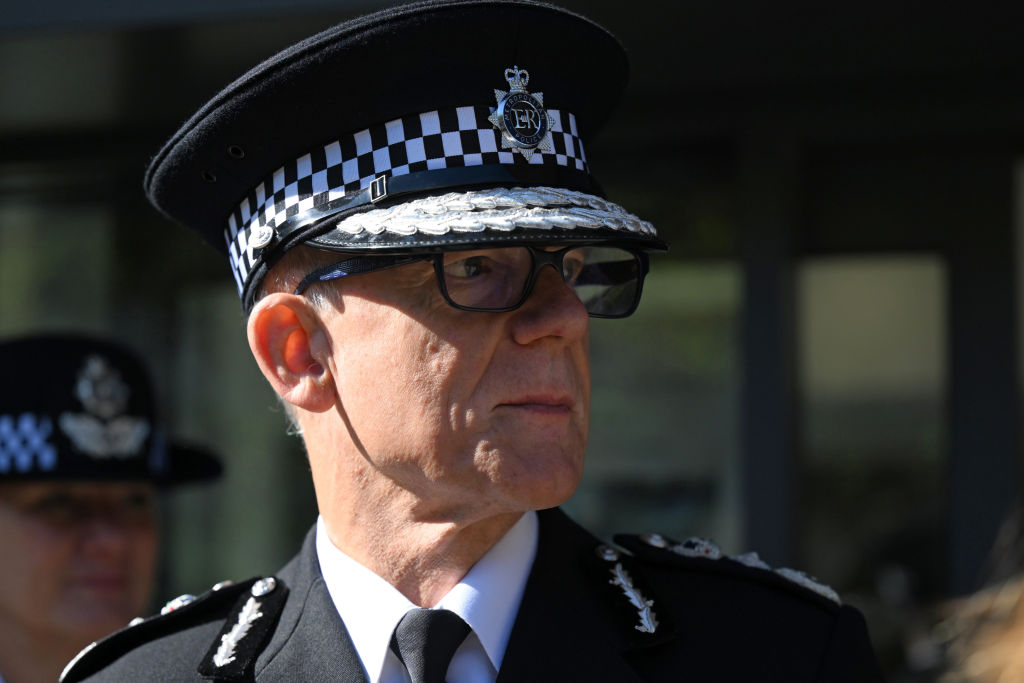Renaming the Met Police would give it a license to ignore wholesale reform

After scandal after scandal have rocked the Metropolitan Police, and the Casey review has found shocking sexism, racism and homophobia. A new name won’t change its habits, writes Eliot Wilson.
It is only six years until the 200th anniversary of the Metropolitan Police Act 1829, the statute which created the modern system of policing that London has today. Even in a country as steeped in heritage as this one, that is quite extraordinary. Think about it: the one-time Prince Regent, the buffoonish figure played by Hugh Laurie in Blackadder the Third, was still on the throne when our police force was first established.
But change is in the wind. The Metropolitan Police has lurched from crisis to catastrophe over the past decade or two, at an accelerating pace, embroiled in financial, ethical, racial and sexual scandals, as well as accused of basic inefficiency. The latest blow came last month with the publication of a review of the Met’s standards of behaviour and internal culture by Baroness Casey, one of our most eminent quangocrats. The review exposed institutional racism, sexism and homophobia, and said the Met was unable to enforce its own standards.
It is not yet clear whether the Casey review is another in a series of death by a thousand cuts, or whether it will prove to be the proverbial camel-endangering straw. It is, however, obvious that this is a desperately serious situation. The capital’s police force, long mistrusted by ethnic minorities, is now becoming even more widely discredited and diminished, dismissed as obsessed with modish gender and race jargon but incapable of enforcing the law.
Three of the last four commissioners of the Metropolitan Police have resigned under challenging circumstances, and media outlets never have to look very far for an interviewee to criticise the police, whose chyron will display some variant of the words “Former officer, Metropolitan Police Service”. The Met faces a crisis which is genuinely existential, as there are calls for it to lose its national responsibility for counter-terrorism or otherwise be remodelled to pursue its core duties.
Enter Sir Keir Starmer, leader of the Labour Party (and former director of public prosecutions, lest we forget). Speaking on the News Agents podcast, he described the scandal of David Carrick, the policeman and serial rapist nicknamed “Bastard Dave” by his colleagues, as “jaw-droppingly shocking” and acknowledged a slew of other instances of criminal conduct by police officers.
Among his other proposals, Sir Keir suggested that any reform of the Metropolitan Police might have to look to the Northern Ireland peace process as a model and consider a change of name. “If changing the name signals a change”, he argued, it was a step worth considering. Nothing should be out of bounds. “Do we need to strip it down? And look again? Yes.”
It would be unfair to suggest that rebranding was Sir Keir’s only suggestion, but it is significant because it indicates the way his mind works. And he shares a mindset with many politicians. What’s in a name? Well, for ministers and MPs, quite a lot. Changing an organisation’s name is always tempting for politicians because it is an immediate indicator of change and it can be done solely by their fiat.
Look at the way prime ministers change the names of Whitehall departments. It happens at the wave of a hand. It is eye-catching and attempts to signal broader, more profound reform.
In this case it would be a mistake. Not only would it serve as a proxy for real action, allowing any home secretary or mayor of London to sit back and congratulate him or herself for decisive change. The rechristening of the Royal Ulster Constabulary as the Police Service of Northern Ireland, while bitterly controversial, achieved something for the nationalist community because it removed the word “royal” and its hated associations with British governance. But it also required a decade of affirmative action to recruit substantial numbers of Catholic officers.
Anyone familiar with the corporate world knows, however, that rebranding is always expensive but not as reliably effective, and sometimes damaging. Twenty years ago, Royal Mail briefly became Consignia, attempting to broaden its business from simply carrying letters and parcels. A public backlash saw it simply as junking the organisation’s heritage, and after spending millions of pounds it reverted to Royal Mail in the summer of 2002.
Renaming the Met would be a quick win. It would suggest to the public that the government “got it”, that it understood the need for London’s police to change and had acted quickly and decisively. But it would risk standing as a proxy for achieving deeper cultural change, which the Met very urgently needs. And it might risk tarnishing the force’s reputation still further. It is a politician’s response, and, without wanting to be too harsh to Keir Starmer, it just isn’t enough.